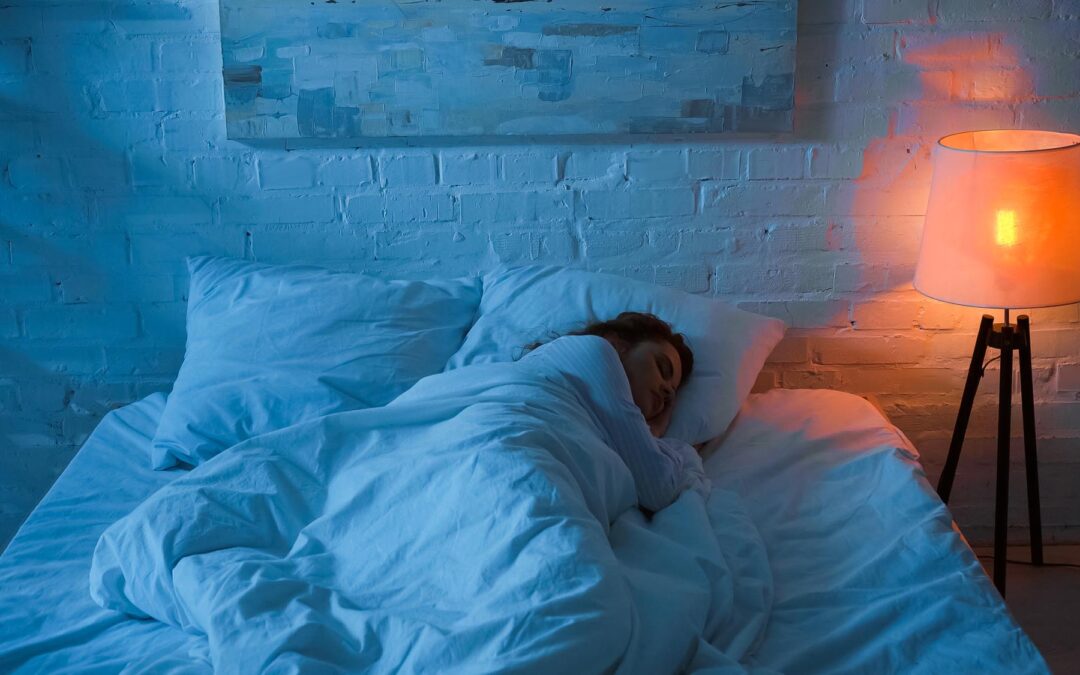Hydroxyzine for Anxiety: Short-Term Relief vs. Long-Term Solutions for Managing Anxiety. Living with anxiety can feel overwhelming, like being caught in a storm without any direction. If you’re looking for relief, you may have come across hydroxyzine – a medication that’s gaining popularity in managing anxiety.
Hydroxyzine is an antihistamine, but its calming effects make it useful for treating anxiety symptoms. Unlike traditional anti-anxiety medications, which can take time to work, hydroxyzine provides quick relief when you need it most.
It’s important to understand that managing anxiety goes beyond just finding temporary fixes. It’s essential for your mental health, physical wellbeing, and overall quality of life. If left untreated, anxiety can affect various aspects of your life:
- Your relationships
- Work performance
- Sleep patterns
- Daily activities
- Physical health
In this guide, we’ll explore how hydroxyzine can help with anxiety management. We’ll compare its short-term benefits to long-term treatment options and discuss its effectiveness and safety considerations. Additionally, we’ll look at how hydroxyzine fits into a comprehensive plan for treating anxiety.
Whether you’re thinking about trying hydroxyzine or looking into other ways to manage your anxiety, this information will empower you to make informed choices on your journey towards better mental health.
Understanding Hydroxyzine: How It Works and Its Role in Anxiety Management
Hydroxyzine is classified as a first-generation antihistamine. This prescription drug operates differently from typical anxiety medications like benzodiazepines or SSRIs, making it a unique option for anxiety management.
How Hydroxyzine Works
The medication’s primary mechanism involves blocking H1 histamine receptors in your brain. When histamine levels decrease, you experience:
- Reduced nervous system activity
- Decreased anxiety symptoms
- Calming effects throughout your body
- Relief from physical tension
In addition to its antihistamine effects, hydroxyzine also influences neurotransmitter systems, including serotonin and norepinephrine. This is similar to the action of serotonin-norepinephrine reuptake inhibitors, which are often prescribed for anxiety and depression. Your brain’s response to hydroxyzine creates notable sedative properties. These effects typically include:
- Muscle relaxation: Easing physical symptoms of anxiety
- Mental calmness: Reducing racing thoughts
- Improved sleep: Helping establish better rest patterns
The Unique Benefits of Hydroxyzine
The sedative nature of hydroxyzine stems from its ability to cross the blood-brain barrier effectively. This characteristic allows it to influence multiple neurotransmitter systems, including:
- Serotonin regulation
- Acetylcholine modulation
- Norepinephrine balance
Unlike many anxiety medications, hydroxyzine’s antihistamine properties provide a dual benefit – managing both anxiety symptoms and common allergic reactions. This makes it particularly useful for people experiencing anxiety alongside seasonal allergies or skin conditions.
The Calming Effects of Hydroxyzine
The medication’s effects on your central nervous system create a gentle calming sensation without the strong sedation associated with other anti-anxiety medications. This balance allows many users to maintain daily activities while experiencing anxiety relief.
Short-Term Relief with Hydroxyzine: Quick Fix or Temporary Solution?
Hydroxyzine stands out as a rapid solution for acute anxiety episodes, delivering noticeable relief within 30 to 60 minutes after taking the medication. This quick-acting response makes it particularly valuable for managing unexpected anxiety spikes or panic attacks.
Recommended Dosage Guidelines:
- Initial dose: 25mg for mild symptoms
- Standard dose: 50mg for moderate anxiety
- Frequency: 3-4 times daily as needed
- Maximum daily dose: 200mg for adults
The medication’s fast-acting nature proves beneficial in several urgent situations:
- Panic Attacks: Helps reduce intense physical symptoms like racing heart and shortness of breath
- Social Anxiety: Provides relief before stressful social events or public speaking
- Acute Stress: Manages anxiety during unexpected challenging situations
You’ll notice the calming effects start within the first hour – your racing thoughts slow down, muscle tension decreases, and breathing becomes more regulated. The sedative properties help create a sense of relaxation without completely impairing your ability to function.
While hydroxyzine offers quick relief, it’s important to understand its role as a temporary solution. The effects typically last 4-6 hours, requiring multiple doses throughout the day for sustained anxiety management. This short duration makes it an ideal tool for situational anxiety but highlights the need for additional treatment strategies for long-term anxiety management.
Long-Term Solutions for Chronic Anxiety: Exploring SSRIs and SNRIs
Selective Serotonin Reuptake Inhibitors (SSRIs) and Serotonin-Norepinephrine Reuptake Inhibitors (SNRIs) are key treatments for chronic anxiety conditions. These medications work by adjusting neurotransmitter levels in your brain, addressing the underlying chemical imbalances that contribute to anxiety symptoms.
Common SSRIs prescribed for anxiety include:
- Sertraline (Zoloft)
- Escitalopram (Lexapro)
- Fluoxetine (Prozac)
Popular SNRIs for anxiety treatment:
- Venlafaxine (Effexor)
- Duloxetine (Cymbalta)
Unlike hydroxyzine’s rapid 30-60 minute onset, SSRIs and SNRIs require 4-6 weeks to reach full therapeutic effect. This extended timeline reflects their mechanism of action – gradually building up in your system to create lasting changes in brain chemistry.
Your commitment to consistent medication use plays a crucial role in treatment success. Missing doses can disrupt the steady-state levels these medications need to maintain their therapeutic effects.
What to expect during the adjustment period:
- Initial side effects may include mild nausea or sleep changes
- Anxiety symptoms typically begin improving within 2-3 weeks
- Full benefits emerge around week 6 of consistent use
- Regular check-ins with your healthcare provider help optimize dosing
These medications offer sustainable anxiety management by targeting root causes rather than providing temporary symptom relief. The gradual onset allows your body to adjust naturally, reducing the likelihood of significant side effects.
Safety Considerations: Hydroxyzine vs. Long-Term Medications
Hydroxyzine stands out in anxiety treatment due to its non-addictive nature. Unlike benzodiazepines, which can create physical dependence and tolerance, hydroxyzine doesn’t carry these risks. You can take hydroxyzine as needed without developing an addiction or experiencing severe withdrawal symptoms when stopping the medication.
The safety profile of hydroxyzine includes common side effects that you should consider:
- Drowsiness: Can affect your ability to drive or operate machinery
- Dry mouth: Manageable through proper hydration
- Mild dizziness: Usually subsides as your body adjusts
- Mental cloudiness: May impact concentration temporarily
These effects typically peak within 2 hours of taking the medication and gradually diminish. Most people find these side effects manageable with proper timing and dosage adjustments.
Benzodiazepines, while effective for anxiety, present significant risks:
- Physical dependence can develop within weeks
- Withdrawal symptoms can be severe
- Risk of misuse and addiction
- Potential for dangerous drug interactions
Long-term anxiety medications like SSRIs and SNRIs have their own side effect profiles, but they don’t carry the same addiction risks as benzodiazepines. Your healthcare provider can help determine which medication aligns best with your specific needs and circumstances based on these safety considerations.
The Role of Therapy in Comprehensive Anxiety Management Plans
Medication alone rarely provides a complete solution for managing anxiety. Evidence-based therapies create lasting changes in how you process anxious thoughts and respond to triggers. Cognitive-behavioral therapy (CBT) stands out as a powerful therapeutic approach that transforms negative thought patterns into healthier perspectives.
How CBT Helps
CBT helps you:
- Identify anxiety triggers and thought distortions
- Develop practical coping strategies
- Challenge irrational fears with logical reasoning
- Build resilience through behavioral experiments
- Create sustainable anxiety management techniques
Your therapy sessions provide a safe space to explore the root causes of anxiety while learning valuable skills. The combination of therapeutic techniques and medication creates a synergistic effect – medications help manage immediate symptoms while therapy builds your mental toolkit for long-term success.
Research on CBT’s Effectiveness
Research shows CBT’s effectiveness in treating various anxiety disorders:
- Social anxiety disorder
- Generalized anxiety disorder
- Panic disorder
- Specific phobias
The skills learned through therapy remain valuable long after treatment ends. You’ll gain practical techniques to:
- Practice mindfulness during anxious moments
- Use grounding exercises when feeling overwhelmed
- Implement progressive muscle relaxation
- Apply cognitive restructuring to anxious thoughts
These therapeutic tools complement medication management, creating a comprehensive approach to anxiety treatment that addresses both immediate symptoms and underlying causes. For those seeking professional help, Advanced Therapy Center in Massachusetts offers comprehensive outpatient treatment and psychiatric day treatment for anxiety disorders.
Seeking Help at Advanced Therapy Center: Your Path Towards Balance and Well-Being!
Your journey to managing anxiety deserves personalized care and expert guidance. At Advanced Therapy Center, our healthcare professionals create customized treatment plans that blend short-term relief strategies like hydroxyzine with long-term therapeutic interventions.
We understand that each person’s experience with anxiety is unique. Our comprehensive addiction treatment therapy programs in Medford, MA provide:
- Individual Assessment: Tailored evaluation of your specific anxiety triggers and symptoms
- Medication Management: Expert guidance on both immediate relief options and long-term solutions
- Therapeutic Support: Evidence-based therapy sessions to build lasting coping strategies
- Holistic Approach: Integration of various treatment modalities for complete mental wellness
You don’t have to face anxiety alone. Our dedicated team at Advanced Therapy Center is ready to support your journey toward balance and well-being. We offer a variety of mental health resources in Medford, MA that can aid in your recovery. Take the first step – contact us at (781) 560-6067 to schedule your consultation and discover how we can help you build a more peaceful tomorrow.





